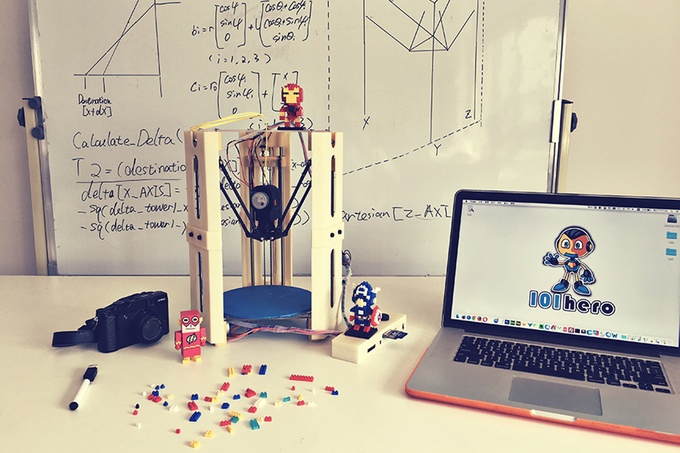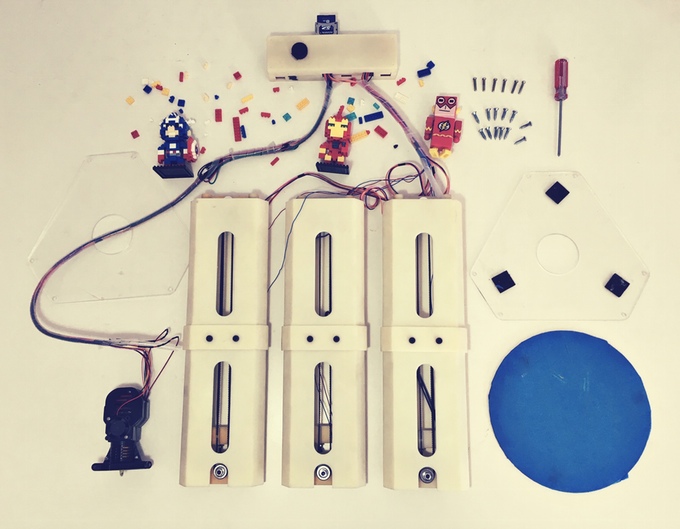
Why does this keep happening? A ridiculously low-cost 3D printer with a low probability of succeeding continues to attract buyers on Kickstarter.
The “101Hero” is the lowest cost 3D printer I’ve ever seen, even beating the USD$100 Peachy Printer (and we know how that worked out).
The machine is, as you might suspect, extremely basic. It includes a delta-robot design with a single extruder, and can print a cylindrical volume of height 100mm and diameter 150mm, so not very big.
The 101Hero seems to be focused on those who know little about 3D printing, and indeed completely avoids the need for slicing software by delivering an online community from which you can download pre-sliced GCODE. This GCODE is simply loaded on an SD card, inserted into the 101Hero and you push “print”.
There’s a “Designer & Developer” version that costs a bit more. It includes a USB hookup to drive the machine directly from your computer (or a cloud service, I presume).
The 101Hero is not a kit; it’s “90% assembled”. You’ll ned to do some simple final assembly when you get your machine.
It’s priced at a staggeringly low price of USD$49 per unit, including a single spool of filament – but that spool apparently is only 30g! They describe the spools as “lightweight”, and they’re not kidding!
But I have a number of questions about this project:

The images of the machine suggest it’s largely made from plastic, which would increase vibrations and misalignments. I’m wondering what kind of print quality you might expect from this design. While it’s theoretical layer size is 50 microns, it’s very hard to believe you’d actually get high-quality prints from this machine.
The machine is said to print a variety of materials, including ABS, PLA and even Nylon! Yet there is no heated print surface, making it very problematic to print at least ABS and Nylon.
The 30g spools are intriguing. Let’s do some arithmetic. They’re charging USD$74 for a two-spool configuration, implying a spool costs USD$25. Wait a second, that implies the machine itself costs USD$24 in the single spool, USD$49 configuration! Further up the schedule, however, you can get a ten spool configuration for USD$104, suggesting a per-spool price of USD$5.
These prices are quite variable, but let’s convert them to a per kilogram price, which we can compare with other alternatives. The USD$25 spool is equivalent to USD$833 per kg! The USD$5 spool is equivalent to USD$167 per kg, also about eight times higher than generic filament.
It could be that this company hopes to make their profit off of filament sales, not from sales of the printer, which likely is being sold below cost. In fact, the eventual retail price is said to be still only USD$99, but that, in my opinion, is unrealistic.
In spite of my concerns, it seems that the low price speaks loudly, as over 1,100 buyers have already pledged for this machine, raising over USD$130,000 for the company.
But will they be around in a year? I’m not sure, but in any case, USD$49 might be a cheap way to find out.
Via Kickstarter

